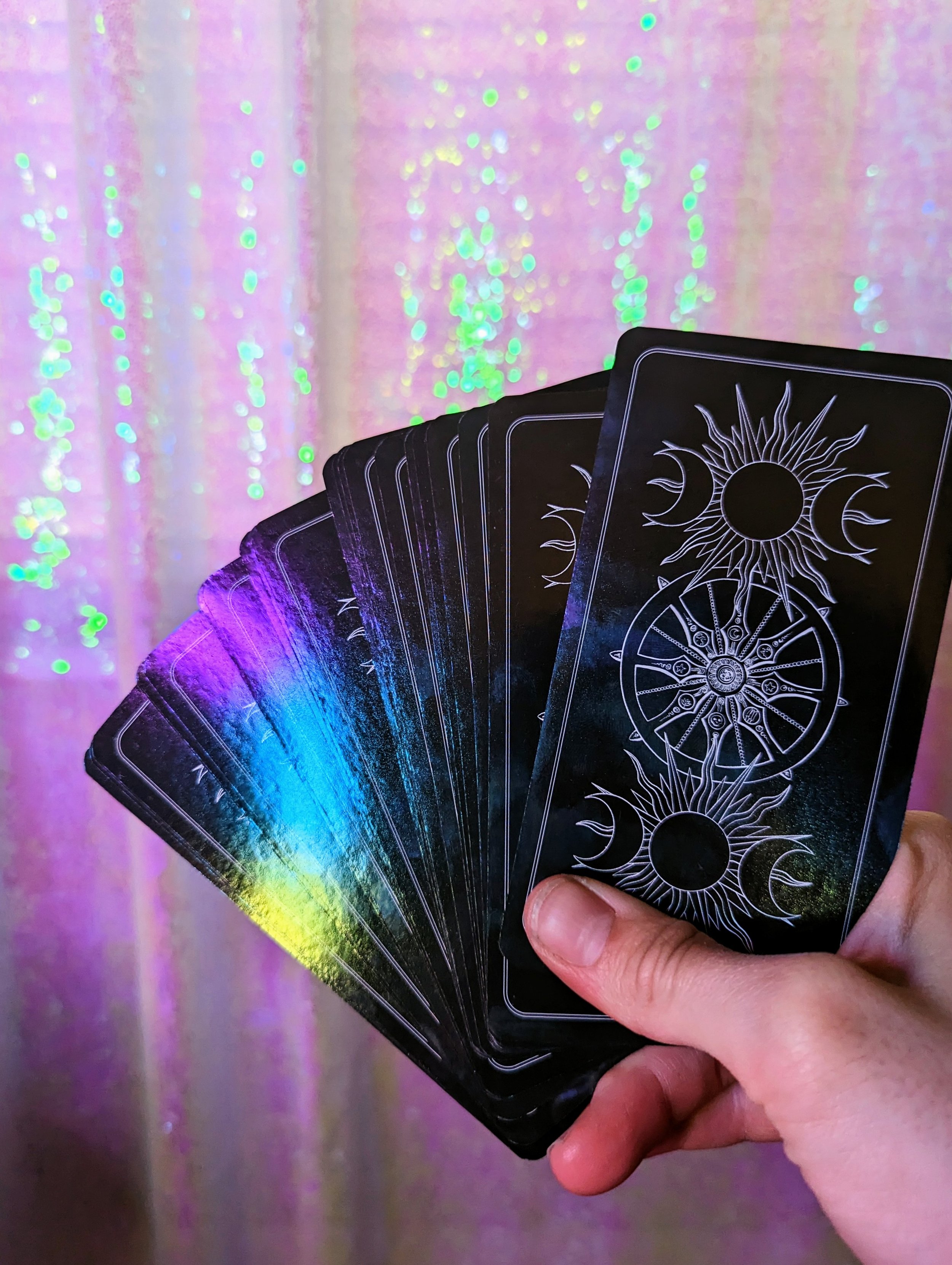
Session Information
Currently, all session types are:
50 minutes long
Self pay
Superbills are available upon request
Insurance coming soon!
$150/session
Please inquire about sliding scale availability, if needed

Services
Individual Sessions
Individual therapy offers a supportive space to talk openly, explore what’s been weighing on you, and move toward greater clarity and balance.
Together, we’ll look at patterns, build coping tools, and work toward meaningful change that aligns with your values.
Every session is collaborative and tailored to your unique needs.
Relationship Sessions
Relationship therapy offers a supportive space to strengthen connection, improve communication, and navigate challenges with care and curiosity.
Whether you’re part of a couple or a polycule, we’ll explore the patterns shaping your relationships and work toward greater trust, understanding, and balance.
Every relationship deserves the chance to grow and feel more connected.

Therapy Modalities
These are some of my favorite therapeutic approaches, but our work together won’t be limited to them.
Each session is a collaborative process where we’ll discover what fits you best.
-
Dialectical Behavior Therapy (DBT) is a powerful, skills-based approach that helps people manage overwhelming emotions, build better relationships, and stay grounded in the present. Originally developed for folks with intense emotional experiences, DBT has proven especially helpful for those navigating addiction, healing from childhood trauma, and living as part of the queer and trans community. It blends acceptance with change—teaching practical tools like distress tolerance, emotional regulation, mindfulness, and interpersonal effectiveness. DBT creates space for self-compassion and empowerment, which can be deeply healing in the face of shame, stigma, or past pain.
-
Mindfulness-Based Cognitive Therapy (MBCT) combines the grounding power of mindfulness with the practical tools of cognitive therapy to help people break free from unhelpful thought patterns. It's especially supportive for those recovering from addiction, healing from childhood trauma, and navigating the unique stressors that can come with being queer or trans. MBCT helps build awareness of thoughts and feelings without getting stuck in them, creating more space for choice, self-compassion, and healing. It’s about learning to be present with yourself—exactly as you are—with kindness and curiosity.
-
Harm reduction is a compassionate, nonjudgmental approach that meets people where they are—without expecting perfection. In a therapy setting, harm reduction means supporting clients in making choices that reduce risk and increase well-being, even if they're not ready or don’t want to stop a behavior entirely. It’s especially useful for folks navigating substance use, self-harm, or other coping strategies that have helped them survive. Rooted in respect and collaboration, harm reduction honors each person’s autonomy, values, and lived experience—creating a safer space for honest conversations, growth, and change on your own terms.
-
For the past 10 years, I have served my community in two main ways:
Fun fact, it’s what brought me to being therapist!
Studies have found many therapists see the benefit for their clients when they use complementary and alternative tools such as these.

Complementary & Alternative Crafts
Completely optional and only done with enthusiastic consent.
If you’re curious, here’s a quick overview of each!
Movement & Mindfulness
(The M&Ms)
Mindfulness is now an evidence-based practice for general mental health (anxiety and depression), trauma-informed practices, and complex post-traumatic stress disorder.
These practices can be as easy as noticing a breath or creating a relaxing stretch session.
It’s important to remember..
..these come from Indian culture and are often associated with Buddhism & Hinduism, as they should be. Acknowledging their roots respectively is essential as to not perpetuate harmful cultural appropriation.
Tarot Cards
Tarot cards are a fun way to stimulate conversations and new ideas in therapy sessions. Its creative process and imagery can sometimes bring playful calmness.
You can even get your own deck and learn how to use these in your self-reflection at home!
It’s NOT..
..fortune telling or futuristic information
..the therapist talking at you, telling you what to do
..a form of divination or a religious practice
Walking Therapy
Who says we have to be sitting in a still, quiet room while we talk?
Though that can definitely be nice too, we have options!
A relaxing walk through a park or nature during a session can be a great way to practice mindfulness and sometimes help get frantic energy out of the body for more clarity of the mind.
We only walk at a location where you are comfortable,
a pace that feels good to you, and
on days we both agree upon.

Any questions? Ask me anything!
Any questions? Ask me anything!
Really!
You are always welcome to send me an email and ask about any services, my schedule, or just say hello!





